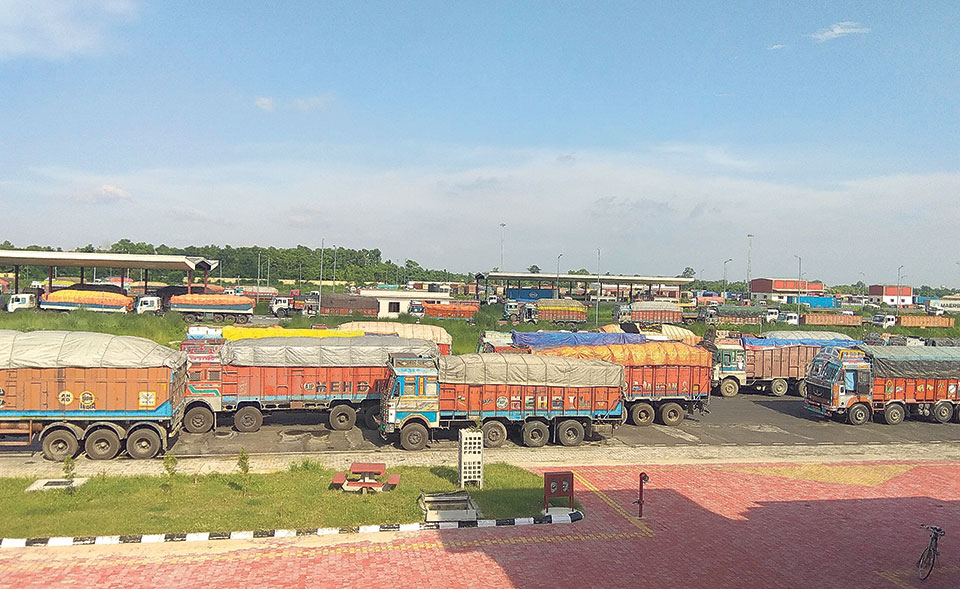September 29, 2020: Nepal’s trade deficit during the period of mid-July to mid-September declined by 24.93 percent, significantly lowering the import expenses.
Records maintained by the Department of Customs show that the country’s imports in the first two months of the current fiscal year declined by 22.07 percent to Rs 178.84 billion. During the same period last year, imports fell by 1.22 percent.
According to the officials of the Ministry of Industry, Commerce and Supplies, the notable fall in imports this year was due to the import restriction measures and lockdowns enforced by the government.
The exports on the other hand increased by 10.49 percent to Rs 20.44 billion. With an improvement in the trade position, the imports to exports ratio fell sharply to 8.75 from 12.40 earlier. It means that Nepal is now importing goods worth Rs 8.75 for every export of Re 1.
The decrease in the consumption of fossil fuels was seen as a major contributor to the downfall of the country’s total imports expenses. With the restrictions in vehicular movement during the lockdown, the country’s expense on petroleum products fell almost to one-third. According to the department, Nepal spent Rs 8.71 billion, a straight fall from Rs 27.14 billion in the review period last year.
Since Nepal enforced a nationwide lockdown on March 24, the movement of public transport and airplanes mostly came to a halt for more than five months. As a result, imports of both diesel and aviation turbine fuel (ATF) declined heavily. While ATF imports fell to Rs 189.47 million from Rs 1.76 billion, diesel consumption was down to around Rs 5 billion from Rs 14.67 billion.
Likewise, petrol consumption stood almost halved to Rs 3.40 billion. There was a nominal fall in the imports of cooking gas, from Rs 4.36 billion to Rs 4.17 billion. In the first two months, shares of fossil fuels in total import value was five percent, compared to around 12 percent in the review period last year.
During the period, the export of processed soybean oil, yarn and woolen carpets topped the export earnings. Nepal exported processed soybean oil worth Rs 5.47 billion. Similarly, the export of yarn and woolen carpets stood Rs 1.80 billion and Rs 1.32 billion, respectively.
Iron and steel products, jute sacks and readymade garments were also among the major exports that gave the country significant earnings over the period.
Source: myRepublica









